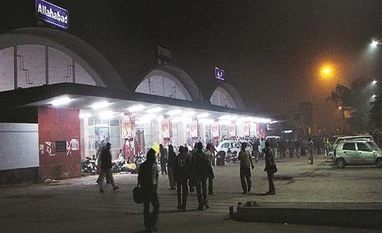The name-change had been a long time coming: It had been planned by the Bharatiya Janata Party (BJP) when it was in power in Uttar Pradesh in the early 1990s, but was postponed following riots after the demolition of the Babri Masjid.
The small town was home to India’s second prime minister, Lal Bahadur Shastri; Upadhayaya was found dead near the station, under mysterious circumstances, in 1968.
After Mughalsarai, the name of Allahabad was changed to Prayagraj. Both acts of revisionist nomenclature drew flak from the Opposition, who saw it as an outcome of BJP’s Hindutva ideology.
The defenders argued that giving places their “original” names was like reclaiming their identity. This is a post-colonial project in many parts of the world.
However, de-Islamisation and equating the Islamic period in India with European colonisation is a flawed process, the aim of which is more political than historic. No matter, proposals to change the names of Shimla, Aurangabad, and even the Taj Mahal are in the works.
To read the full story, Subscribe Now at just Rs 249 a month
Already a subscriber? Log in
Subscribe To BS Premium
₹249
Renews automatically
₹1699₹1999
Opt for auto renewal and save Rs. 300 Renews automatically
₹1999
What you get on BS Premium?
-
Unlock 30+ premium stories daily hand-picked by our editors, across devices on browser and app.
-
Pick your 5 favourite companies, get a daily email with all news updates on them.
Full access to our intuitive epaper - clip, save, share articles from any device; newspaper archives from 2006.
Preferential invites to Business Standard events.
Curated newsletters on markets, personal finance, policy & politics, start-ups, technology, and more.
Need More Information - write to us at assist@bsmail.in
)